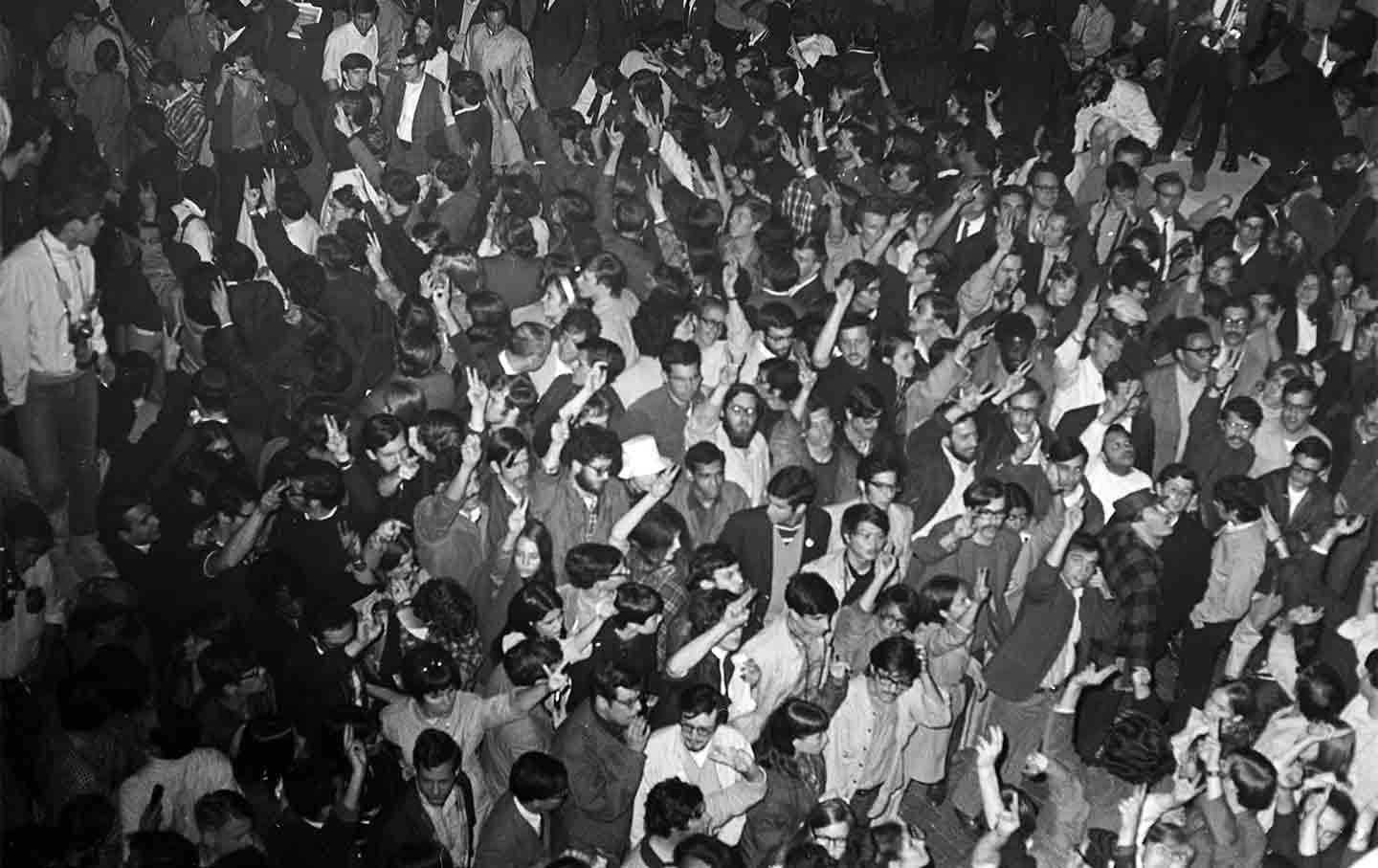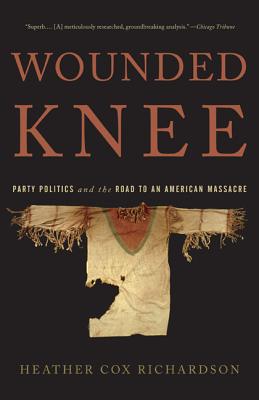American History Chat - May 7, 2020
Link to video on Facebook
Link to transcript

Oligarchies need to justify themselves. HCR has been highlighting this in her video
chats, where we have heard about the
Mudsill theory of James Henry Hammond and the Cornerstone Speech of Alexander Stephens.
In our group, the work of James
McGill Buchanan has been discussed, which gave a theoretical framework to ideas that
John Calhoun espoused a century
earlier, and which gave a 'technology of ideas' to the Koch enterprise.
HCR's American Paradox (equality for some depends on inequality for others) chats are
nearing their conclusion now - The
latest was the penultimate on this topic, as we reach the era of Reagan. In so doing, we
have come to know the influence
of William F Buckley, perhaps the most important mid-century public intellectual
responsible for perpetuating seemingly
erudite justifications, as so-called 'movement conservatism' took hold of the Right, and
ultimately led to the situation
we have today.
In this chat, HCR examined the idea of the individual as the nation transitioned into
the era of the New Deal and WWII,
during which time government intervention occurred at unprecedented levels, then moved
on to the conservative reaction
against the liberal consensus -- Buckley's books the start of the National Review in the
1950s, Taft's politics,
Goldwater's candidacy in the 1960s, race relations in the 1970s and 1980s, and the rise
of Reagan.
The cry continued: "DO NOT let them take your hard earned wealth and give it to the
lazy, the undeserving...the others...THEM, not part of US"
HCR has now moved to an era that directly leads to our own time. As such I have posted
many more links than usual,
including some that related to topics she didn't cover, but were events that were
occurring at key junctures in this
period.
Links (underlined) related to topics covered in the chat
Impressions of America is a podcast that started in 2018, and focuses on deep dives into specific topics in recent U.S. history. In this episode, featuring an interview with Douglas Rossinow, the "New Left" (whose focus was on narratives and manifestations of white supremacy and American imperialism) is covered. Rossinow has a sensibility and knowledge about leftist movements in the US, particularly in the 20th century. The discussion gets into the origins of the New Left in the mid-20th century, to its demise by 1972, and its relationships with black power movements, with intellectual liberals (such as John Kenneth Galbraith and Arthur Schlesinger Jr), and with counterculturists (the so-called ‘hippies’ and the ‘merry pranksters’ who often considered the New Left ‘politicos’ unauthentic), including periods of conflict and those of rapprochement. Several interesting figures come up such as Ken Kesey, Thomas Wolfe, Paul Tillich , and Dietrich Bonhoeffer. Rossinow claims that mass support for figures such as Reagan and Nixon, while abetted by an antipathy to the New Left, was primarily driven by an opposition of significant segments of white society to civil rights legislation and by alienation caused by perceived threats from the emerging liberal agenda as exemplified by Johnson’s 'Great Society'.

In this podcast, Keneshia Grant discusses her new book about black migrations to Northern cities (such as Detroit, Chicago and New York city) in the 20th century (depicted by artist Jacob Lawrence), which played a big part in the new political alignments in the democratic party, as described in the Clifford memo , which helped get Harry Truman elected in 1948.

Destructive Creation: American Business and the Winning of World War II
Bridging the gap: Lessons for tackling income inequality from mid-20th century US education laws
The Great Compression: The Wage Structure in the United States at Mid- Century
Interview of William F Buckley in 1980
A Change in Gender Roles: Women’s Impact during WWII in the Workforce and Military
Did World War II Launch the Civil Rights Movement?
A ‘Warrior Tradition’: Why Native Americans continue fighting for the same government that tried to wipe them out
Mexican Americans and World War II
The Zoot Suit era is when white America learned to stereotype young Latinos as threats
Race relations in WWII
How World War II Almost Broke American Politics
THE LIBERAL CONSENSUS: 1945-1968
Robert Taft and His Forgotten “Isolationism”
The Cold War Red Scare, McCarthyism, and Liberal Anti-Communism
Joe McCarthy and the (Second) Red Scare (podcast)
Ike vs Taft (video)
Army-McCarthy Hearings-- exchange with Welch (video)
HOW DONALD TRUMP AND ROY COHN’S RUTHLESS SYMBIOSIS CHANGED AMERICA
Our Mission Statement (by WF Buckley upon the launch of the National Review)
California's Role in WW2
Military-Industrial Complex
a look at Movement Conservatism from the Left
The Southern Manifesto of 1956
The Murder of Emmett Till
Buckley's 'Why the South must Prevail'
William F. Buckley and National Review's vile race stance: Everything you need to know about conservatives and civil rights
Goldwater v. Fact Magazine
Phyllis Schlafly set the conservative agenda, and set back equality for women
The legendary 1965 debate between Baldwin and Buckley at the Cambridge Union that laid down US political lines on race, justice and history (video)
Reagan's "Time of Choosing" in 1964 (video)
The most consequential loser (podcast discussing the long-term effects of the Goldwater campaign of 1964)
The Chicano Movement
Native American Activism: 1960s to Present
How the 1960s' Riots Hurt African-Americans
Star Spangled Banner by Jimi Hendrix (video)
The Truth Behind The Lies Of The Original 'Welfare Queen'
This is the itunes site of the podcast 'Impressions of America', which covers political discourse since the 1950s, and has several episodes relating to today's chat (including those covering WF Buckley, the liberal consensus, and Richard Nixon)
In this session, HCR covered the development of movement conservatism in the mid-20th century to the so-called Reagan revolution. The pivotal role of William F Buckley became apparent, which generated some discussion in facebook forums. The post-war liberal consensus (which may be characterized as the acceptance of the need for government to provide social programs, sensible regulation and infrastructure) caused a significant reaction on the Right, and Buckley was one of the main instigators. Buckley's various interventions (such as support of Joseph McCarthy and the start of the National Review) put in place a number of processes that ultimately set the stage for Reagan, for Gingrich and for Trump. Buckley was influenced by the thought of Albert Jay Nock, and his relationships and views evolved, including those on the John Birch Society (which may be re-emerging), Ayn Rand, leading right-leaning economists, and Donald Trump. Buckley also had a series of very famous debates, including those with Gore Vidal (videos), with John Kenneth Galbraith (video), and with James Baldwin at the Cambridge Union that laid down US political lines on race, justice and history (video).
This podcast episode discusses the “liberal consensus”, which while it did not sufficiently take into account minority, ethnic, and gender rights, did provide the means for the unprecedented existence of wealth and income parity for about a half century in the United States. We learn about Truman’s 'Fair Deal’, the importance of John Maynard Keynes (whose theories provided the economic framework for the New Deal and the liberal consensus), about exchanges Norman Mailer and James Baldwin and between William F. Buckley and Mailer (they both believed in individualism, but of different types, the former with an emphasis on self-expression, and the latter on self-interest), about the 'bootstrap argument' argument, of a bygone era in television (as exemplified by David Susskind's "Open End", which was not restricted into a time slot), and about how forces that would have pulled apart the consensus were kept in check (on the left by threats of 'communism', and on the right by 'anticommunism', which provided a common ground for conservatives who believed in government institutions, and libertarians, who advocated for limited government). The media buttressed this arrangement by limiting what narratives made progress in the public sphere. Yet the liberal consensus with its intrinsic flaws began to crack, and its critique from the Left in the 1960s provided an opportunity for the reactionary Right, which through a variety of means started to take control of the political sphere, with a resulting erosion of the public commons (of ideas, services, safety nets and infrastructure).
Brainwashing, per se, emerged as a technique in the 1950s after the Korean War in the US, and for many years secret programs were conducted to develop methods to do this more effectively using behavioral techniques, isolation, coercion and drugs. One of the most notorious of the programs (that we know of) was CIA's MK Ultra, which utilized the services of a UCLA psychiatrist named Louis Jolyon West. Recently a book came out, whose author Tom O'Neill quite painstakingly and at personal risk brought significant chunks of the MK Ultra story to view, and in so doing also shed some light on the Charles Manson saga (aspects that were not covered in the book "Helter Skelter" or in the movie "Once Upon a Time in Hollywood"). He was recently on Joe Rogan and on other shows and podcasts. Other than this book, material on MK Ultra is difficult to find online, although there are people working at the fringes, quietly digging away. Many experiments with questionable ethics were carried out during this period, and some have been connected to Ted Kaczynski, the Unibomber. Some of these experiments were strange and their implications are still not understood.
Spiro Agnew is largely forgotten now, but in the late 1960's and through throughout Nixon's Presidency, until his downfall for corruption (unrelated to the Watergate Affair), Agnew was one of the most popular politicians in America. His rise was precipitated by his victory in the 1966 Maryland gubernatorial race over a candidate of the old Southern Democratic party, and in the 1968 as Nixon's vice-presidential candidate as a way to take conservative voters away from George Wallace. Agnew was extremely talented as a populist and was able to push Nixon's agenda (such as voiced in the silent majority speech ), served as an attack dog , and was a key advocate for the Southern strategy. Interestingly, the figure of Pat Buchanan emerges in this narrative as someone who more than 50 years ago helped elevate Agnew, wrote speeches for him , and more recently can be seen as paving the way for Trump's Presidency. This podcast with author Charles Holden discusses the career of Spiro Agnew and his role as a populist.





